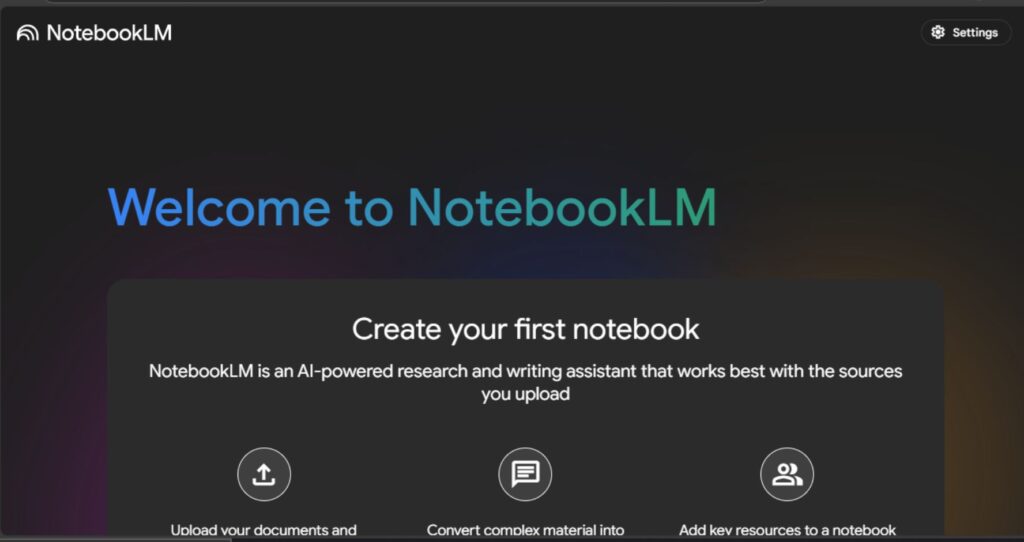Google has taken a bold step into the future of podcasting with its latest update to NotebookLM, its AI-powered note-taking application. Introduced as part of an experimental feature, users can now engage directly with AI-generated podcast hosts during the app’s Audio Overviews. This new interactive mode, still in beta, allows users to ask questions in real-time and receive responses from the AI hosts, transforming what once was a passive listening experience into a dynamic, personalized learning session was once. According to Tech Crunch, this feature is designed to help users better digest complex information by enabling them to interact with the hosts as if they were receiving a tutorial.

Launched in September 2024, NotebookLM initially focused on transforming text documents—such as course materials or legal briefs—into engaging audio podcasts hosted by AI. The AI hosts, which are powered by sophisticated natural language processing algorithms, can explain the content to users, mimicking a conversation between two hosts. The recent addition of the interactive feature takes this a step further by allowing users to ask follow-up questions, seek clarifications, or request deeper explanations during the audio overviews. Google hopes that this interaction will mimic a tutoring environment, creating a more engaging and accessible learning experience for users across various fields of study.
The new interactive mode aims to enrich the user’s engagement with educational content. As Google’s blog notes, it’s akin to having a personal tutor who listens and responds based on the knowledge from the documents a user provides. To use the feature, users simply tap on the “Interactive mode (BETA)” button and can join the conversation by asking questions. However, as with any experimental feature, this interactive mode is not without its challenges. The AI hosts sometimes pause awkwardly or provide responses that may not always be entirely accurate, as noted by experts and Google itself. The feature is still being fine-tuned, and feedback will likely shape its future development.

Despite these limitations, experts believe that the feature’s potential is vast. By allowing users to engage directly with content in a conversational format, NotebookLM could redefine how people consume educational materials. However, there are concerns. As with any AI-powered tool, users may encounter issues with the technology’s interpretation of questions or its ability to maintain coherent dialogue, leading to confusion or frustration. Additionally, the feature’s reliance on AI raises questions about data privacy, especially given its use in educational contexts.
While the interactive podcast feature is still in its infancy, it could have a significant impact on the way people interact with educational content. Google’s decision to include this feature highlights the growing role of AI in personalized learning. However, as experts point out, its long-term success will depend on how well Google addresses the technology’s limitations and balances user expectations with real-world capabilities.
This new AI-powered approach to podcasts might not only transform how users learn but also position Google’s NotebookLM as a serious competitor to other educational platforms offering similar interactive tools. How well it competes will depend on how quickly it can overcome current limitations and how it continues to evolve in response to user feedback. As Google refines this feature, it could become an indispensable tool for anyone looking to deepen their understanding of complex subjects.












